
“Do you think they are going to come and kill me?” a seven-year-old asked his British-Ukrainian father shortly after the war with Russia broke out.
Almost two months have passed since the war in Ukraine began, killing thousands and creating millions of refugees.
Disturbing images of suspected war crimes have been shared around the world, and inevitably the conflict has an impact on children growing up in an age of renewed nuclear fear.
Volodymyr Muzyczka, a board member of the UK-based Association of Ukrainians, was looking forward to visiting Ukraine at Easter with his family, having missed out on seeing relatives back home for the three years due to the pandemic.
But instead of playing with his cousins in his father’s homeland, his seven-year-old son is “continually worried” about the war.
“When everything kicked off we tried to keep [information] from him as much as possible, we wouldn’t listen to the news, we turned the radio down,” he said.
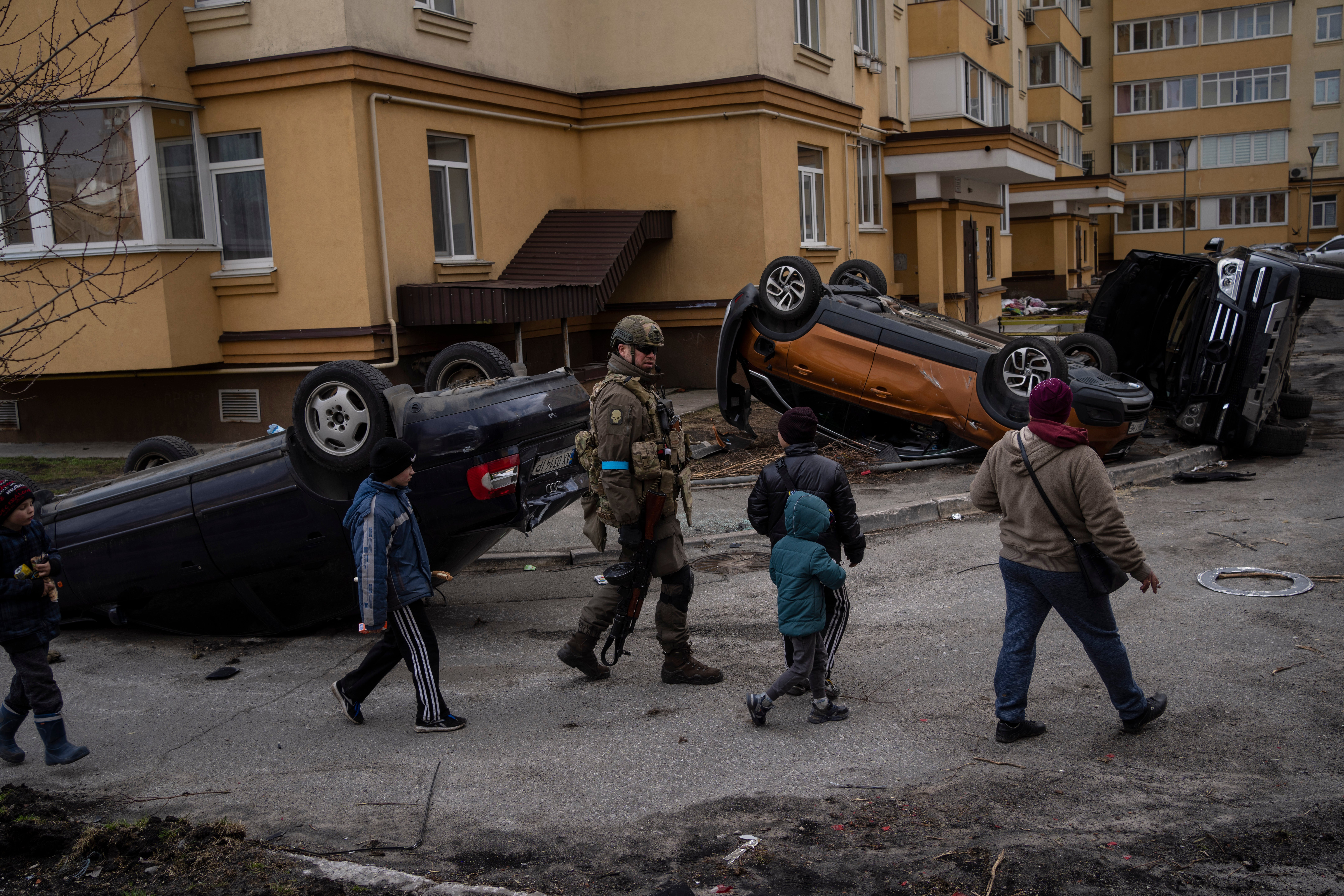
After hearing people talk about the war at school, Mr Muzyczka’s son came home very upset, worried the Russian army would come to kill him, “because I’m Ukrainian and I’ve been to Ukraine”.
“It takes you down blind alley,” the 60-year-old said, as he spoke about how difficult it is to have such conversations with a child.
His son also asked him what a nuclear bomb was one night as he was falling asleep, having heard friends at school talk about it.
Fears of a full-blown nuclear war were triggered after Vladimir Putin put his nuclear deterrent forces on high alert in the first few weeks of war.
“There are some kids whose TV is on at home and the kids have taken it in via osmosis, and then sometimes kids are nasty and may bring it up in a way that is hurtful.
“He’s had a few incidents like that.”
Olena Davie, 44, a British Ukrainian mother of two teenage girls, said her daughters had also experienced upsetting encounters with their classmates about the conflict.
When the war broke out in February, Ms Davie said her girls were “heartbroken, of course”.
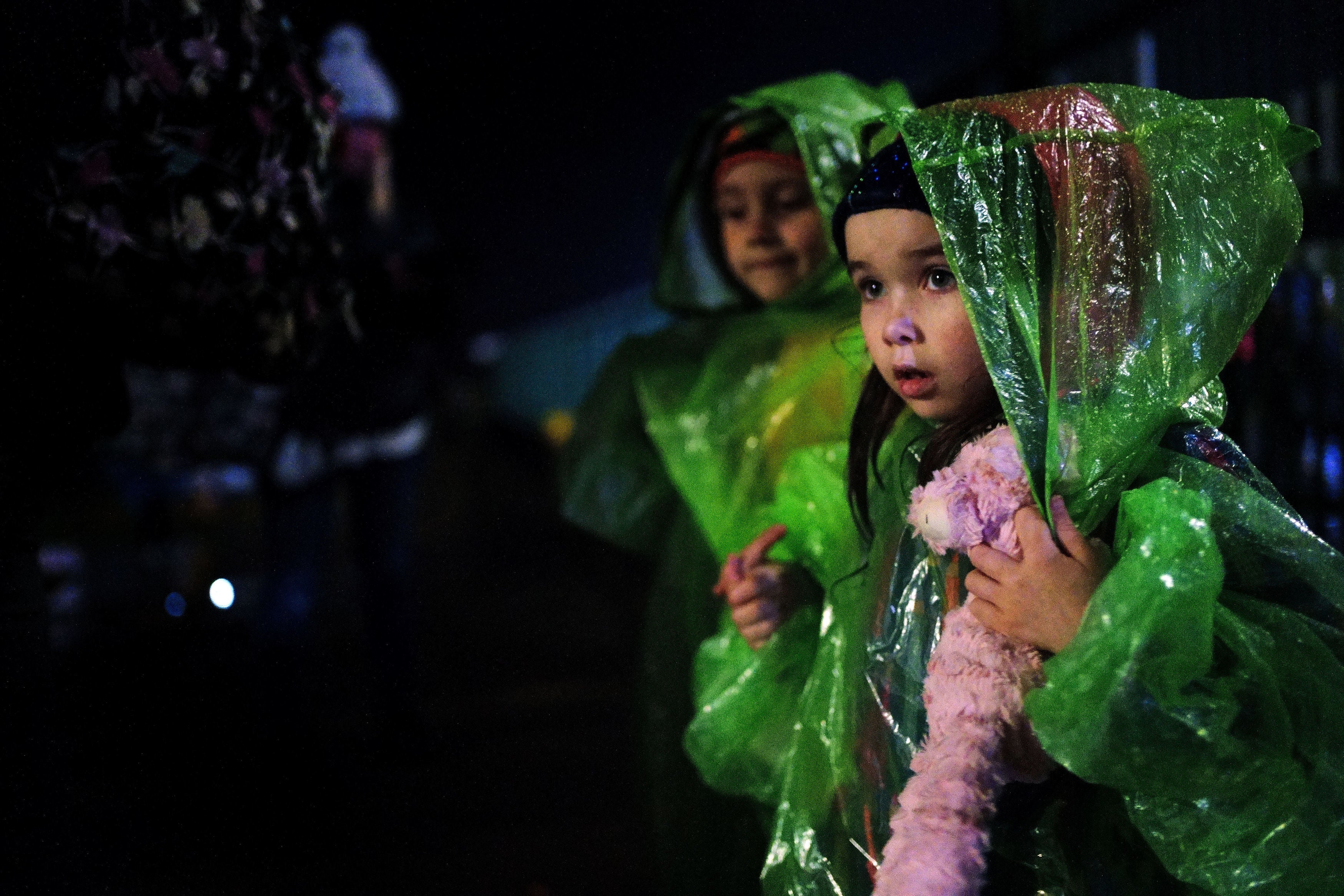
“They were crying a lot and supporting me,” she said. “Their cousin had to cross the border with just her dog and a little suitcase – she’s just 15.”
But considering the difficult news they were confronted with, they were saddened by the lack of awareness from local children.
“They came home from school and were quite upset cause other kids were just laughing and making jokes about it,” Ms Davie said as she revealed her youngest daughter, aged 13, felt the need to defend Ukraine to her class.
“Some of her classmates were laughing at bombs falling in Ukraine, she was quite emotional.
“She stood up in the class and said ‘How dare you? You don’t know what’s happening, you don’t know the fears’.
“I was very proud of my daughter for standing up for what she believes in. She’s one of those kids who doesn’t normally speak up, she is very quiet.”
The 44-year-old comforted her daughters by telling them their classmates were not mature enough to understand the situation.
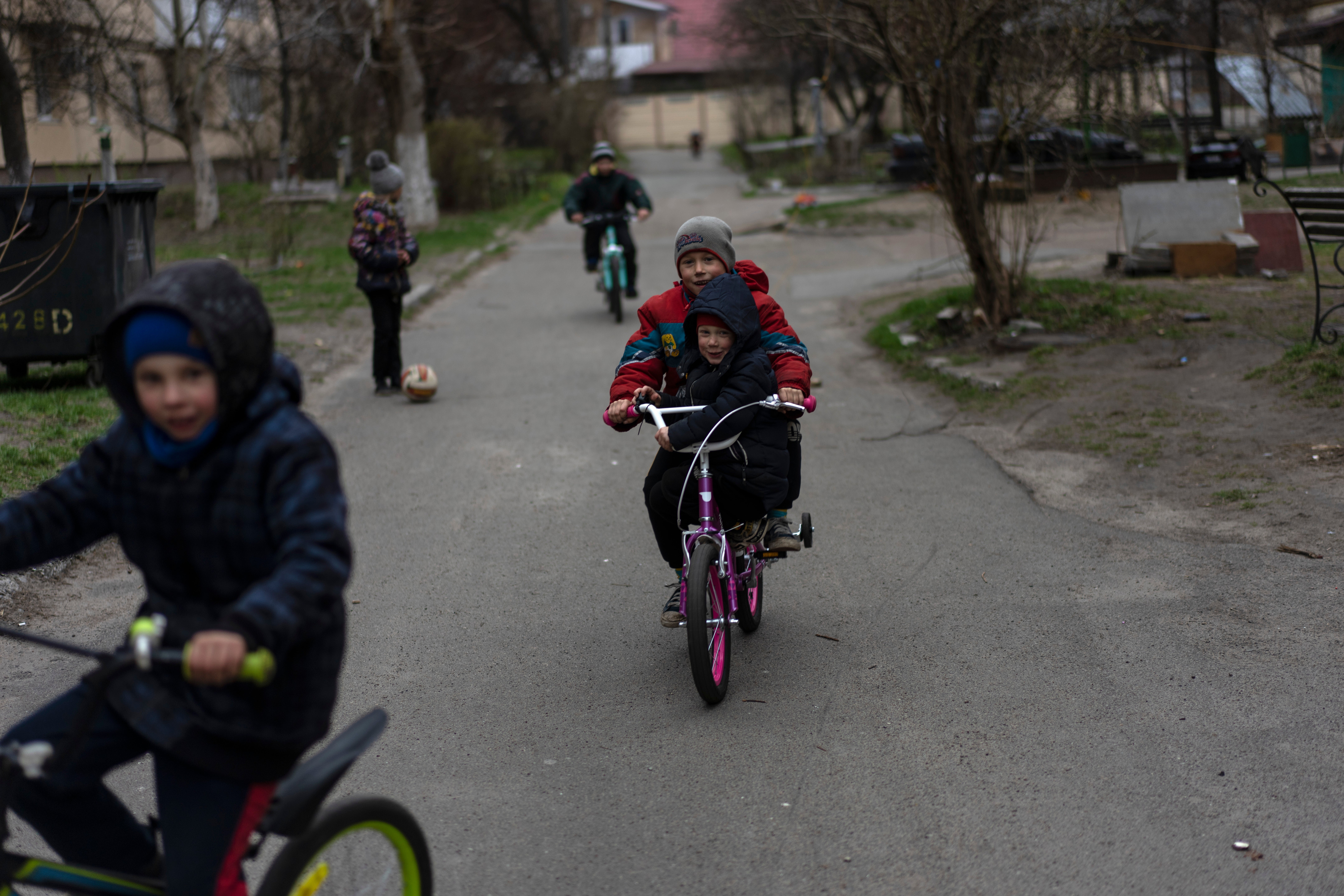
Teachers navigate the conflict
Adam Gill, assistant principal of Penistone Grammar School in Barnsley, said his students seemed more prepared to understand the Ukraine war because “they’re used to two or three years of bleak news and massive societal changes”.
However, he was still faced with many questions such as: “Is it going to continue or are we going to be expected to fight? Is conscription going to happen again?”
As a history teacher, he said he had seen his students making connections between the rise of Hitler and Putin’s invasion.
“The students made the link of how it started with one area and then expanded without us having to point it out.”
Sean Connolly is a primary school teacher at Eastbury Community School in East London.
He described comforting a six-year-old girl in his Year Two class after her mother told him she was very upset seeing the news.
“Her main fear seemed to come from ‘will it happen to us, why is it happening, why aren’t we fighting as well with them?’” the 32-year-old said.
“She accepted that it’s not going to come here and it won’t affect her day-to-day life,” he added, “but not the deeper reasons of why it’s happening.”
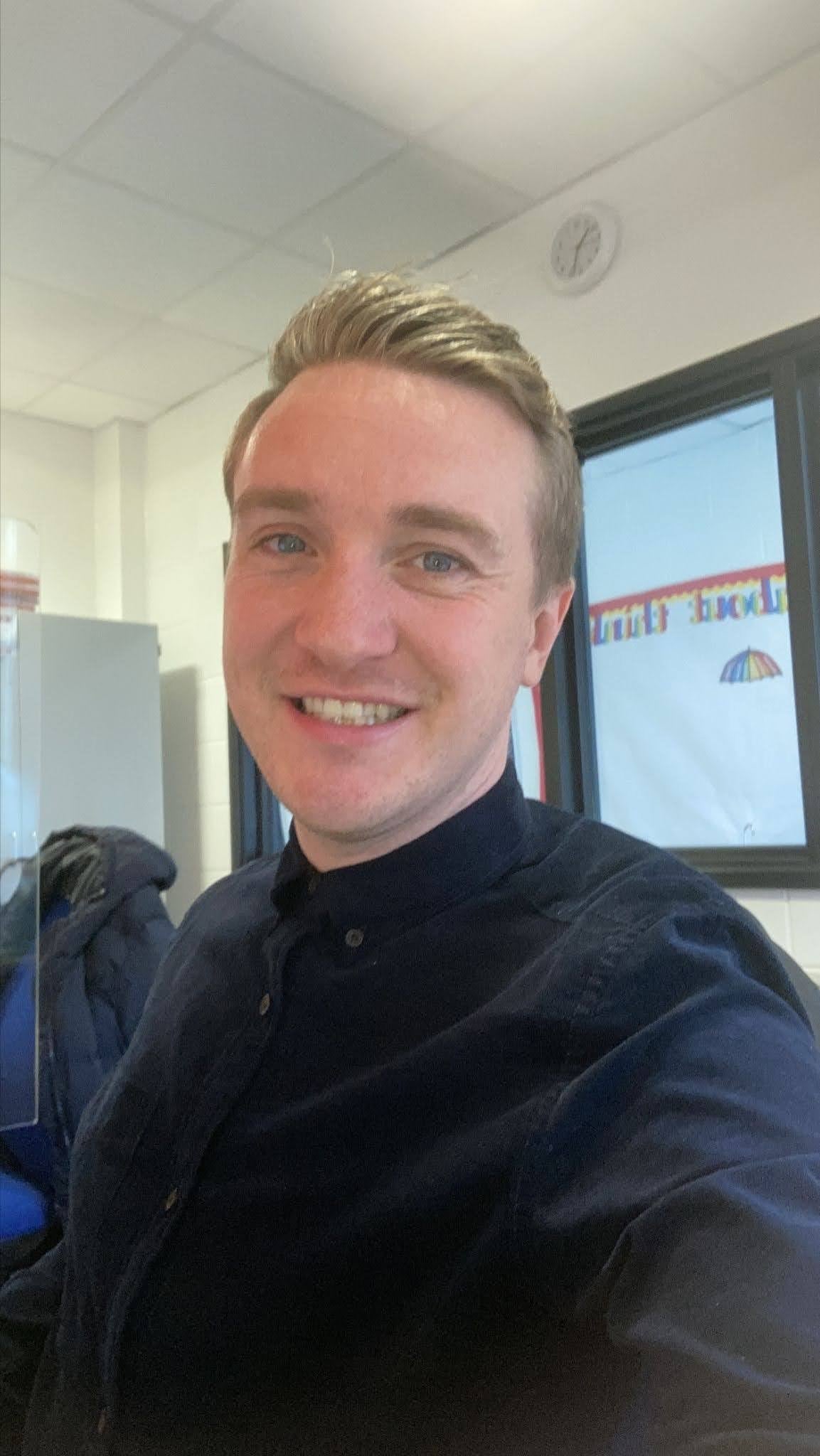
Mr Connolly said: “When we were younger, when we [Britain] were involved actively in the military, the news that came from it seemed like we had to do it for our own safety.
“But the narrative is so different now, people who are being invaded are seen as victims, but we’re not getting involved in the military. It’s tough for them to get their head around.”
Gurpreet Gill is the head of geography at the same school. She said a Polish student in her GCSE class expressed concern for what may happen if her country was dragged into the conflict, worrying that her family will have to go back there.
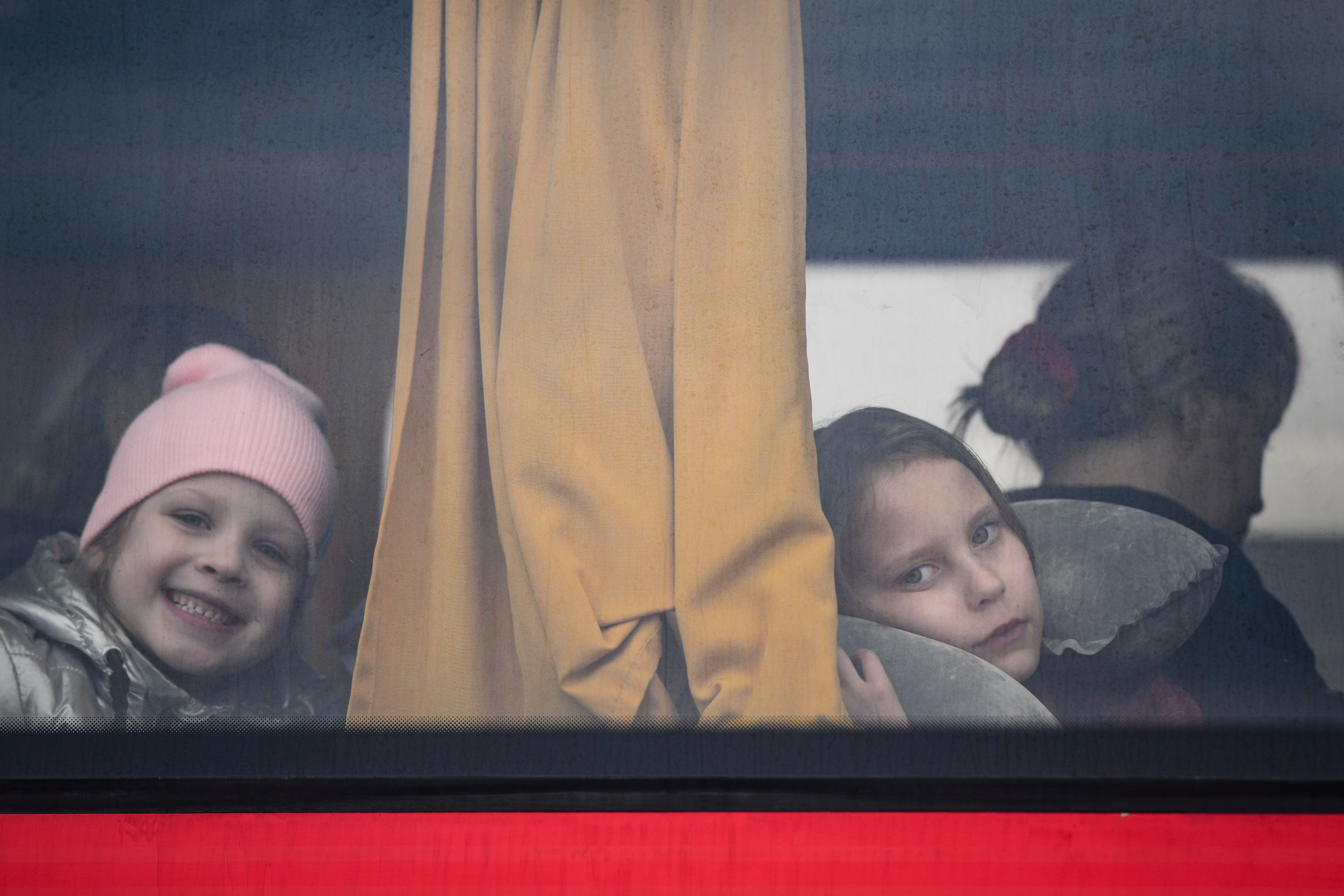
As well as reassuring her student, the 34-year-old said it was important to “focus on raising awareness and listening to key facts rather than fake news,” adding that she reminded her pupils to be wary of polarising narratives that have come out of the war.
She told her students: “Don’t go round and say to any of the Russian students that this is your fault. Their lives are also being ripped apart.”
She also noted there were more observations on the difference in treatment between Ukrainian refugees and other war-torn countries among older students.
“They immediately picked up on the fact that Europe has been a lot more warming and welcoming to Ukrainian refugees compared to Syria,” Ms Gill said, with one student branding the different response as Islamophobic.
Others asked if Ukrainian refugees fleeing the war would end up in the Channel, like in images they had seen before of young Syrian children found swept ashore.
Ms Gill said the school “do not shy away from these topics” and has tried to have “open and frank conversations” with students, ensuring they are “as unbiased as possible”.
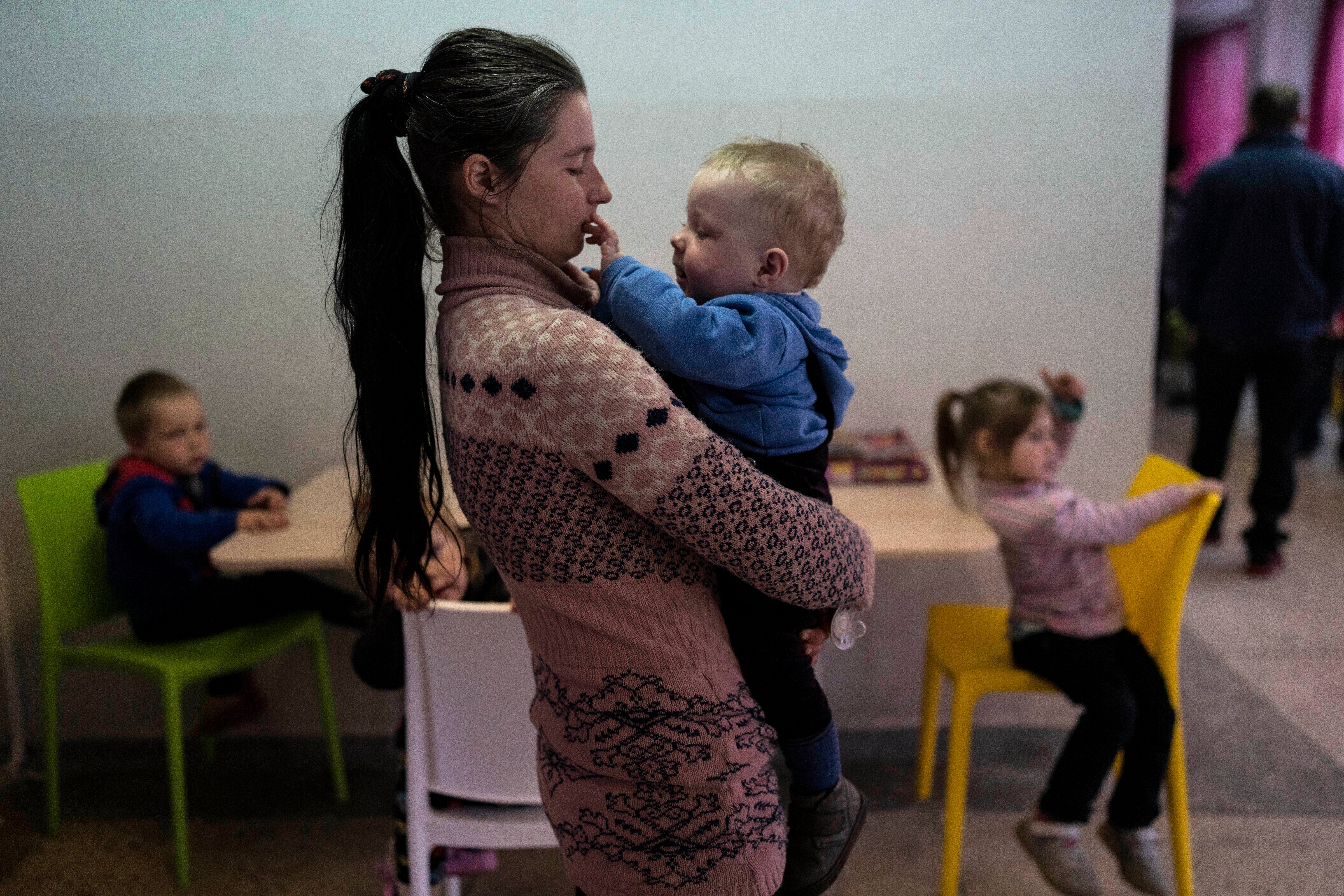
“Students see a lot of these things and they don’t quite understand so it’s for us to navigate that for them,” she added.
Adam Gill, from Penistone Grammar School, works for Minds Ahead, a social enterprise that supports the mental health needs of schools.
He gave the following advice to parents and teachers when speaking about the conflict to children: “It is important that we educate ourselves so we are in the position to have those answers and relieve those anxieties.
“Social media can be an echo chamber, so engage with the wider news.
“Bring them back to the here and now. If they have a panic attack, re-regulate them through their breathing, focus on what they can see, hear and touch.”







